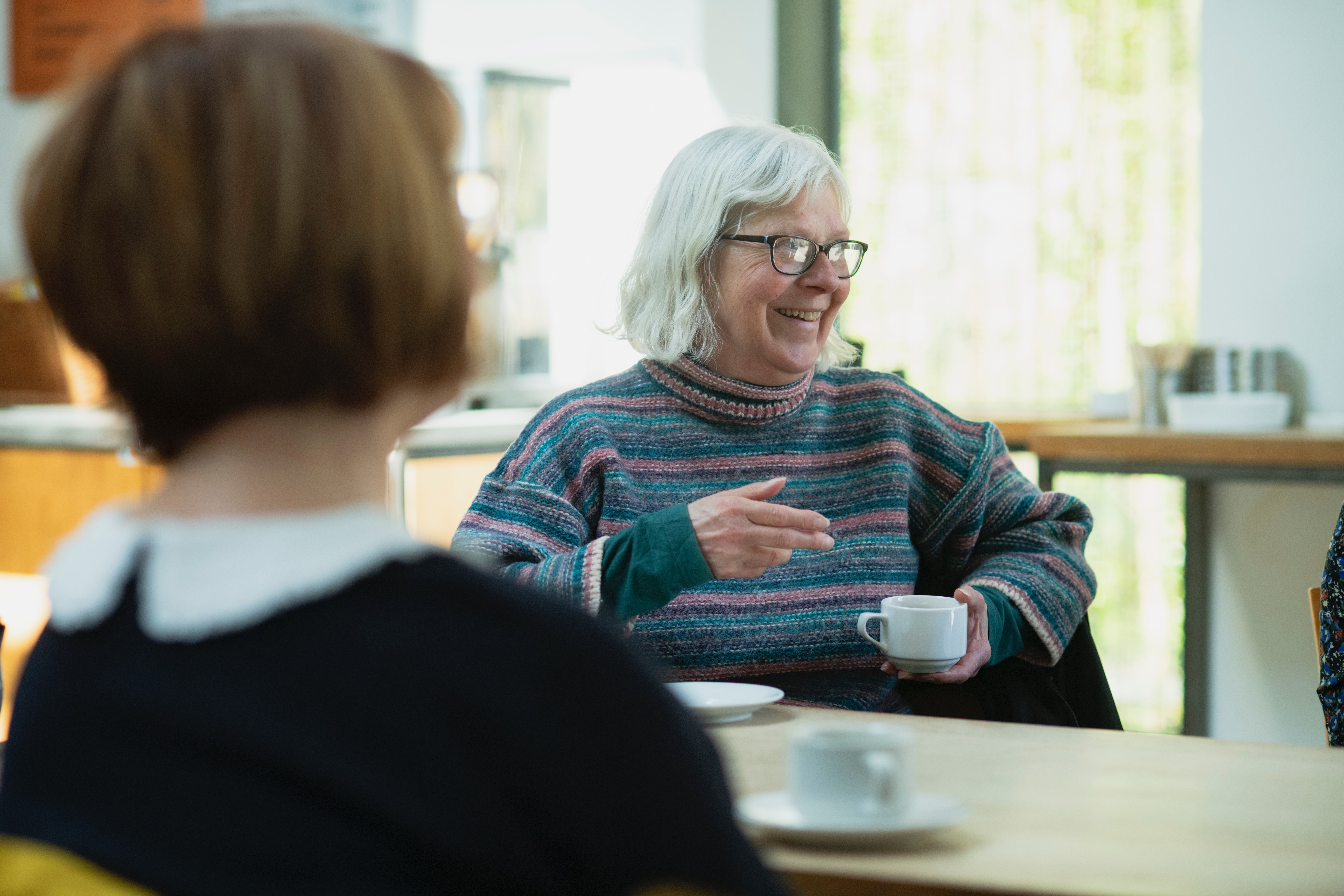Allied Approaches to Timebanking

Photo by Age Cymru
December 2023
Our TimeBanks.Org Chats-On-A-Bench are held monthly on the third Sunday of the month from 4 pm to 5 pm Eastern US time. Here’s our standard format:
- Welcome
- TImebanking’s 5 core values – a quick rundown.
- Breakout session – Hello, and “What’s on your mind?”
- Whole group sharing – drawing on topics from the breakouts.
The Opening: Welcome and The Core Values
The Core Values: 1. All people as assets; 2. See, value and count the work that’s outside of “work”; 3. Reciprocity -- Shared receiving and giving leads to a community rooted in trust; 4. Connection & Kindness -- We all need them!; 5. Mutual respect -- underlies everything our wellbeing on every front.
Chat-On-A-Bench, December 17th 2023
Hello’s and Break-Out Chat
Jerome Scriptunas set the pace on this Chat, introducing the use of photovoice as a way for timebanks to record and highlight their activities, prior to our “Hello” breakout session. After the breakout, the sharing centered on Photovoice and other approaches to building community that TimeBanking could use.
The Main Chat: Allied Approaches to Timebanking
A number of approaches for building community that would be useful for timebankers came up in our shared discussion today.
PhotoVoice: Introduced by Jerome, we learned that Kari Bachman had also regularly used it in an informal way in the timebank that she had founded in Las Cruces, NM. Taking photos was joined with listening sessions. It helped timebank members bring up issues and problem-solve around them more effectively. It also helped them decide what they would not take on as timebankers as well as what they would.
Public Living Room (PLR): Jo Rhodes, who has founded a timebank in Settle, Yorkshire, UK, shared with us how she’s been using the Public Living Room as a low-key trust-building approach that she has found to be very effective.
The core values are similar to timebanking core principles. A big difference is that PLR stresses having no agenda, with the aim of simply bringing people together to be together, and to share whatever comes up in the moment.
To get the ball rolling, PLR provides a “starter” kit of games, cushions, fairy lights and more to set up a welcoming space and provide easy entry points for people to connect. Any public space can be used.
Jo has found that people who wouldn’t get involved in organized programs have been coming to the PLR, some being more engaged, some less, but happy to be in a space with other people. One of the regulars, she said, does nothing other than read the paper. But when one of the group members had an emergency need, the regulars spontaneously sprang into action to help her.
In short, Jo has seen how a group of people who were formerly isolated because of health, low-income, and age-related issues have become regulars, and over time have formed a support group for each other. She sees this as an easy step into creating the trust that timebanking can build on.
Tool Library: This was also introduced by Jo. In the US, tool libraries and “Fix-It Fairs” have both been used by timebanks as a popular group timebank activity.
Helpipedia: This program is oriented to parents of schoolchildren, and aims to create a community of helpful parents who can share their skills and their challenges as they seek to create the best outcomes they can for their children.
This was particularly relevant for Paul Breslow, who is seeking to use timebanking for parents at his children’s school, who he sees struggling to keep up with all the demands of parenthood. He believes that if they joined together to share the tasks, they would be less stressed and have more time to do what really matters for them with their children – but he’s finding that getting people to sign on is a challenge because everyone is so busy!
That led to a discussion about whether it would help to reach out to retired people to join the timebank and help out with this particular project. Paul said that he’s explored that possibility, but found that it was hard to bring people in unless they were grandparents, and they were uninterested in helping with families other than their own.
Which raised a big question: Is it worth taking time and effort to address that reluctance? Or is it better just to let it go, and focus on the parents?
The University of Kansas Community Building ToolBox: This was brought up as an extremely useful and widely used community organizing toolbox with useful tips for getting into action and troubleshooting when community issues arise. https://ctb.ku.edu/en/help-taking-action.
Note: The views and opinions expressed in this blog are those of the author and do not necessarily reflect the views or positions of TimeBanks.Org, TimeBanks, or Timebank members.


